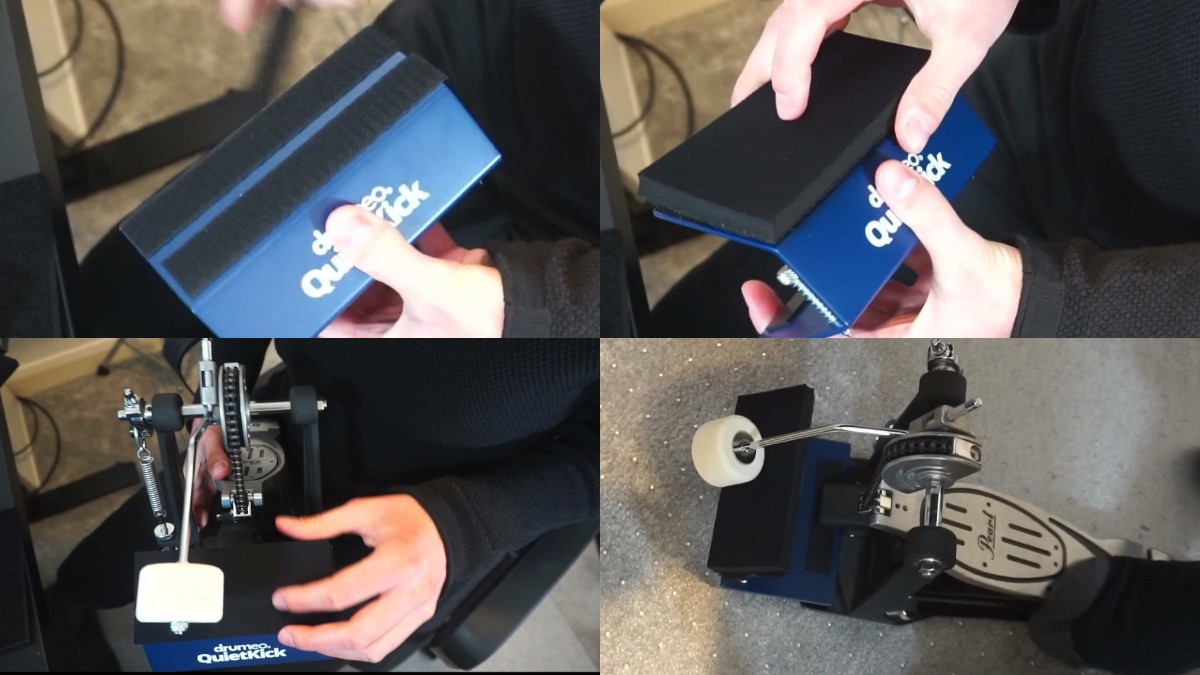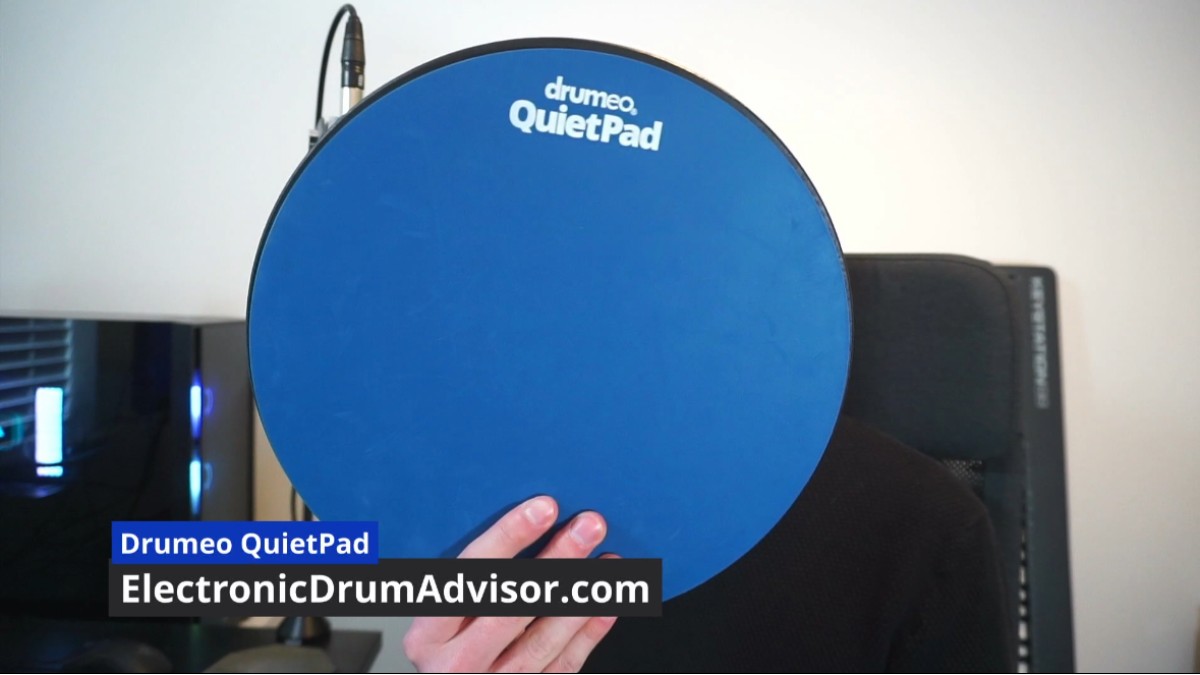What is the Future of Drumming?
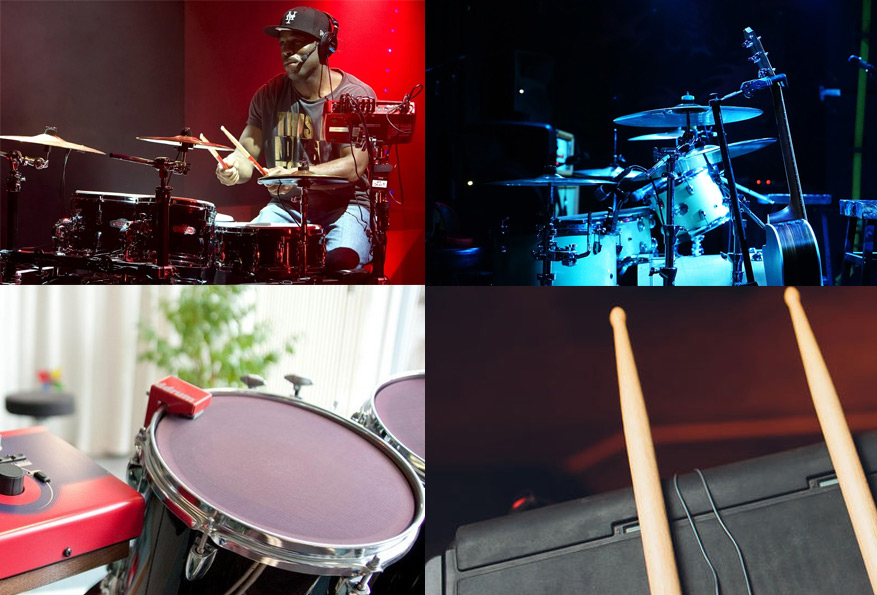
In this article, we’re going to explore how the role and advancements of sampling, MIDI instruments, drum machines, virtual drum studios, and even AI may impact the demand for drummers. Will they make us obsolete or will they somehow make drumming more fun and versatile?
We’re going to start by distinguishing between two types of drummers that I think will continue to diverge over the next few years: Acoustic drummers and hybrid drummers.
It’s always difficult to foresee the future of music production practices. Many mainstream genres are using such a heavy amount of samples and virtual instruments in their productions, that this practice might eventually implode on itself, leading to a revival and acoustic recordings.
However, for the sake of this article, we’re going to assume that the music industry and production styles will evolve on the same course that they have done so over the past 10-15 years.
Contents
1. The Acoustic Drummer
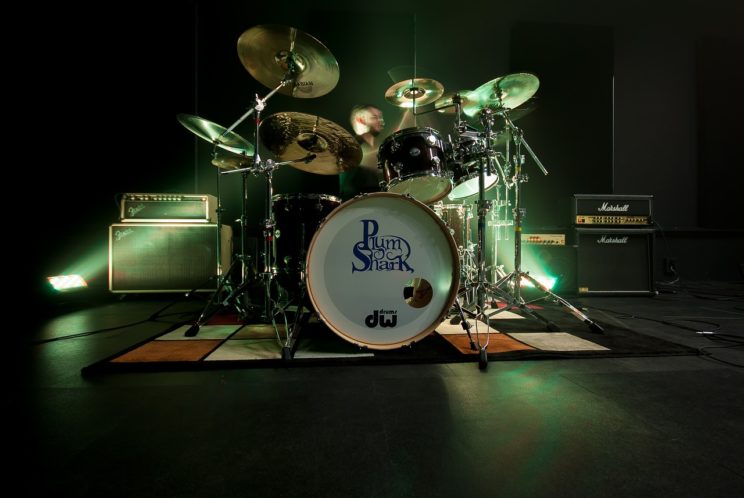
Acoustic drum sets are incredibly fun to play and they give you the best depth of sound in your instruments, such as the sonic possibilities of playing and many different parts of a cymbal or the acoustic crack that you get from your snare drum.
The way that the drum reverberates around the room, as opposed to through one sound source of the PA system, just has a more natural feel. There are a lot of reasons why we will want to stay playing acoustic drums.
There will be certain styles of music, where it will be almost impossible to replace a live acoustic drummer. Jazz is a perfect example of this, where they heavily value live instrumentation and improvisation.
This might also be the case in certain genres of rock, metal, and pop music. However, even in these, electronic elements are currently often used, such as through drum triggering and sample pads, which we will talk about later in this article.
We hope that acoustic drummers will stay in demand for the foreseeable future, but session drummers that do not adopt any hybrid or electronic elements may find it difficult to get session work in the future, particularly if they’re playing mainstream styles of music.
That said… even hybrid drummers still might not be immune to a rapidly changing music industry.
2. The Hybrid Drummer
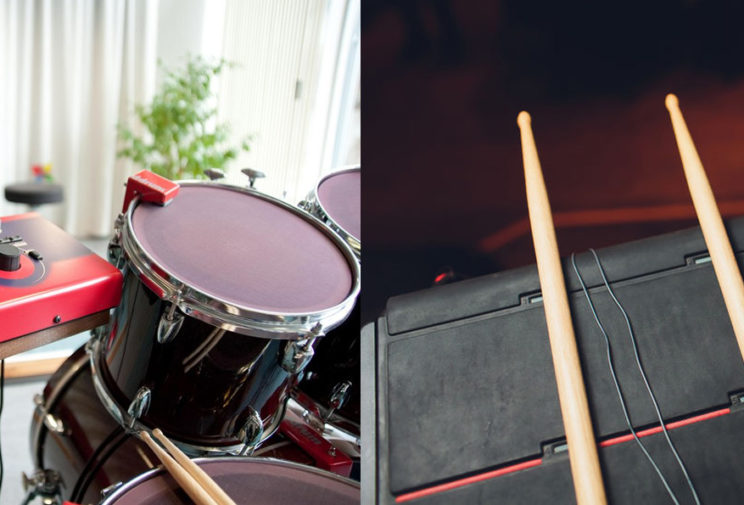
Pop, hip-hop, and other styles of music that contain a lot of electronic or virtual instruments music currently make up the majority of mainstream music in the world.
Many of these genres use drum samples, drum plugins, and VSTs, or drum machines.
Drum kits and acoustic drums have already been replaced in countless genres.
However, live audiences still want to see live drums being played, and live drums being played brings a particularly raw element to the mix.
If drummers want to play in these genres and sound good, they often need to use some sort of electronic elements to make the drums fit in with sound.
They often use drum triggers, have sampled pads and other options, which you can look at in our hybrid drums article.
In our opinion, this is one of the best compromises for the future of drumming in these genres, we still get to play the acoustic drums that we love, but we get to augment them with some of the sounds that are expected in a genre that we might be playing.
Hybrid drumming is likely to become a very standard practice in the next few years unless there is a serious reversal in music production practices.
3. AI – Artificial Intelligence and Drumming
Recent releases of AI tools, such as GPT-3 by open AI are showing that drum beats can be automatically generated, along with full musical compositions by artificial intelligence. This is highly interesting, and possibly slightly worrying for the musical community.
We’re not sure what the future of this is, but some examples of automatic music creation are musenet, which can generate midi compositions for drum tracks from scratch, and jukebox, which can actually generate a raw audio output of music (including drumming)!
These both use OpenAIs GPT-2 model, which has already been replaced by GPT-3 (a much more powerful model). Therefore, this technology is improving at a rapid rate, and we could see some serious developments in this over the next few years. It’s difficult to know what sort of effect that these will have on the future of music in general.
This track was automatically generated using OpenAI’s jukebox:
This track was automatically generated from OpenAI’s musenet. Keep in mind, that this is still in the very early stages:
4. Drumming in the Studio
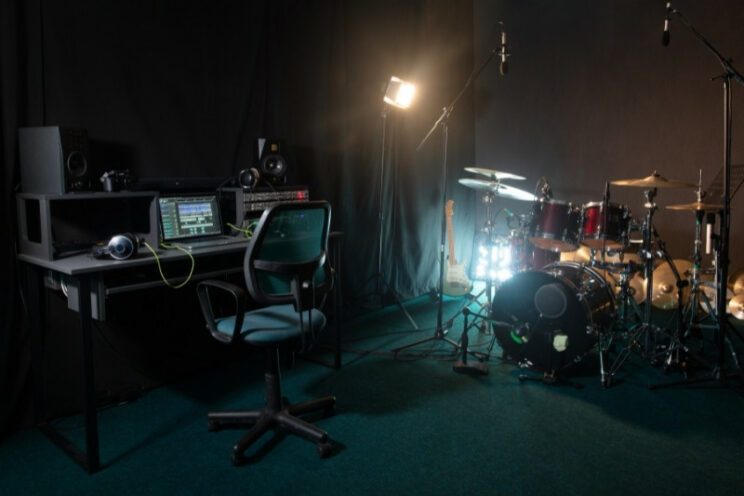
Drumming in the studio will likely continue to be split between acoustic recordings and electronic sampling. Virtual drum simulation is getting so believable that they may, unfortunately, replace the majority of studio recordings of real drummers, particularly for those recording on a lower budget.
Unless there is a rapid revival of acoustic live acoustic recordings for mainstream genres, then it’s likely that drumming will contain to be synthesized and sampled in many recordings.
For example, addictive drums 2 is a very popular virtual drum studio that sounds quite realistic when compared with acoustic drums.
Some genres are characterized by very specific types of drum sounds, such as the 808 drum machine.
5. Learning and education
Drumming, like all musical instruments, will likely benefit from improved learning and education tools that technology will bring over the next few years.
For example, melodics is a very good learning tool, which can use electronic drum kits and other MIDI controllers, and train the drummer. This can help with timing and many different aspects of playing drums, such as learning drum beats from beginner to advanced and learning different styles.
Video tuition is improving year on year. The quality of drum tutorials is ever-increasing, and this will offer a greater depth of knowledge and instruction for students as time goes on.
Online music learning platforms will continue to make it more accessible for students to seek feedback with their drumming online.
Although it’s quite difficult to replace the benefit of having a real drum instructor sit next to you while you are playing, the quality of these online platforms (such as Drumeo) is increasing at a large rate.
Budding drummers may start preferring online courses as it allows them to learn exactly what they want to. Of course, the results of this will greatly vary depending on the self-discipline of the drummer!
New Technology

New drumming technology (based on ideas such as the Freedrum air-drumming product) might eventually become a serious practice substitute for those that don’t have an acoustic drum set.
Soundbrenner Pulse is a very interesting vibrating metronome that instead of playing along to a click track, you can play along to vibrations (on either your arm or chest, depending on if you use a wrist band or chest strap).
This could make it more fun to learn to keep in time while not having a metronome distract from your music.
We know learning and education have improved dramatically over the last 10 years. We’re not sure what will come out of the next 10 years, but we always have high hopes and are excited to share interesting news and insights as it comes along.
Summary
We think that drumming is here to stay, but that it will have to change in many shapes and forms.
The music industry has had to get used to changing and adapting environments. It seems to be one of those industries that gets heavily affected by technological change and it will probably continue to do so.
In the 2000s, the rise of internet sharing of music was hailed as the collapse of the music industry as a whole. However, artists have found a way to adapt in some shape or form.
In many cases, music is no longer as lucrative for musicians that don’t have a large following, but there are still ways for artists to get creative. Those who can adapt to the new environments will find ways to keep going and to keep loving what they do.
Even if technology replaces drumming for the most part, there will likely still remain a decent portion of people that will want to hear the original instrument.
Either way, it will still be a lot of fun to play your drum set!



